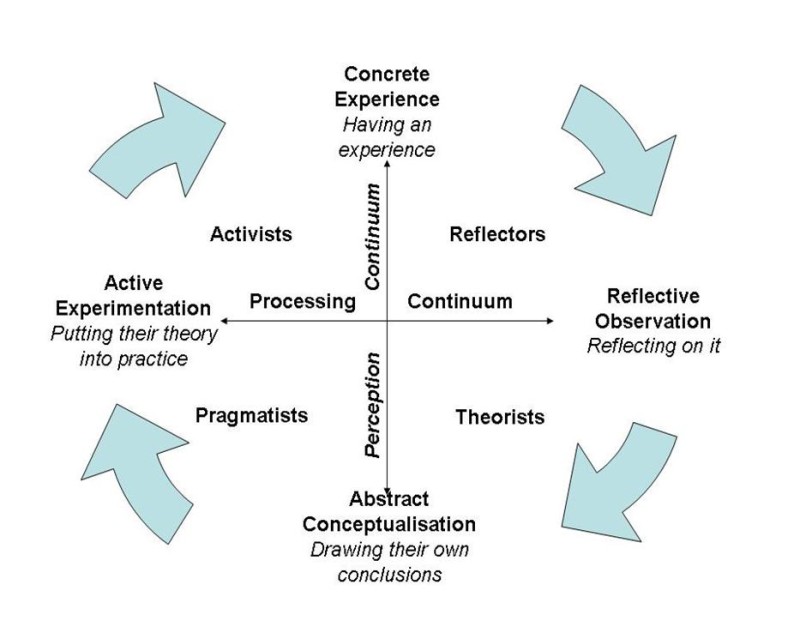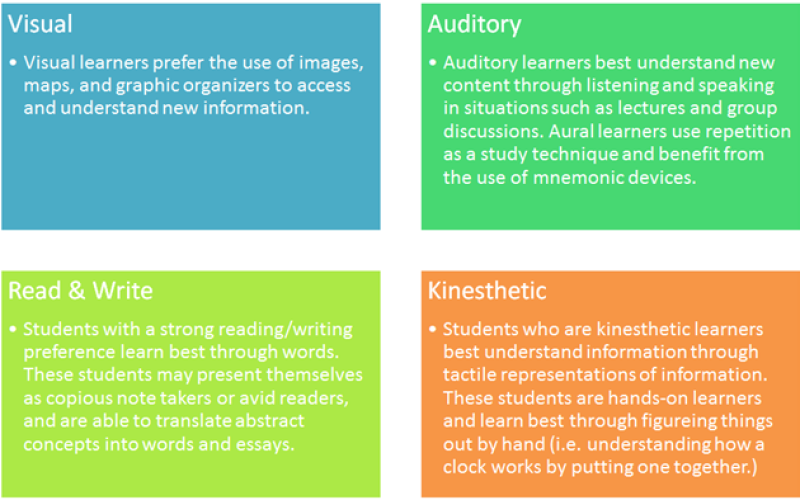Approaches to teaching and learning
As adults we usually have our own ideas about what we would like to learn, how we would like to learn and how we would like to be treated by our ‘teacher’. You are supporting students who are adult learners and have chosen to study as a dispensing optician so some understanding about yourself and your student as a learner will help promote a positive experience for you both and maximise learning for your student.
Characteristics of an adult learner are generally considered as:
- Being self-directed and responsible for own learning
- Having existing experiences which can draw from to inform current learning
- Being motivated to learn especially when able to see the direct relevance of what is being learning and able to recognise why they need to know something
- Being able to problem solve
- The student being able to share responsibility for their own learning and the outcome
As we have all been, and will continue to be, shaped and influenced by our learning experiences we may approach learning from different individual perspectives and indeed use different approaches depending upon what it is we need or want to learn. It is therefore possible that you may find yourself supporting a student who learns in a very different way you. There is much learning theory to conceptualise approaches to learning and here the intention is to give some introductory insights to some of these.
Before looking at some ways to conceptualise learning however it may be useful for you to do a brief reflection on your own ideas about learning:
Activity 1
Consider and write down your preferences in relation to the following:
What would you like to learn, if given a choice and why would you like to learn this?
How do you like to learn?
How do you like to be treated by your teachers?
Activity 2
Consider the following questions to when you were at infant/primary/junior school:
What were you taught and why were you taught this?
How did you learn?
How did your teachers treat you and how did this make you feel?
Is there any difference between your two sets of answers? If so what are the main ones? Or what are the similarities?
Kolb suggest that effective learning can be conceptualised as a cycle of having experiences, thinking about the experience, analysis and then testing concepts. Effective learning will go through repeated cycles. Diagrammatically this can be represented as follows:

Awareness and understanding of the different ways individuals learn can help identify learning opportunities that will be most beneficial. For the teacher having an understanding of some of these differences can help with adapting their way of supporting the student, communicating with them and facilitating their learning.
Honey and Mumford’s learning style questionnaire offers one way of considering how learning is most effective for an individual and gives insights to being an activist, reflector, pragmatist or theorist
If you are interested in reading more about this way of considering learning styles the following links will be of interest:
http://www.brainboxx.co.uk/a2_learnstyles/pages/learningstyles.htm
http://www.peterhoney.com/content/LearningStylesQuestionnaire.html
VARK
VARK is another questionnaire which provides one way of understanding learning strategies and a preferred style of learning. VARK stands for Visual, Aural, Read/write and Kinaesthetic and considers how we use or are drawn to these methods when learning.
Activity 3
Follow this link and complete the short questionnaire to see what type of learner you are: http://vark-learn.com/the-vark-questionnaire/
How does this compare to what you wrote down in Activity 1?
Some basic principles of VARK are that:
- Visual learners enjoy the use of diagrams, flow charts, posters and videos
- Aural learners enjoy the use of the spoken word
- Read/write learners enjoy reading available resources and having opportunity to make notes
- Kinaesthetic learners enjoy being shown how to do something
However as you may have already discovered it is possible to be multi-modal and enjoy/prefer learning from more than one of these areas and it is important to remember that our preferences can and do change over time and depending upon what it is being learnt.
To further understand strategies to assist student learning using the VARK concept it would be useful to visit the following pages: http://vark-learn.com/strategies/









